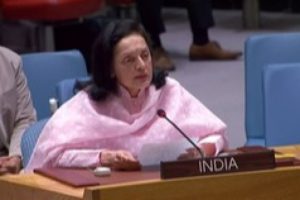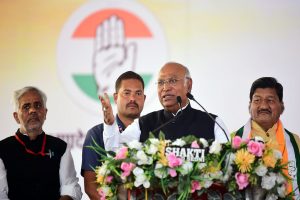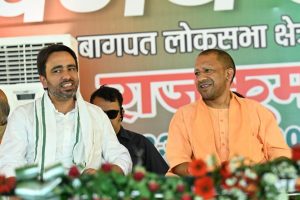Every time there is a visit to Pakistan by a senior US representative, the remarks made are similar. Pakistan must do more to curb its support to terror groups. It must bring the Taliban to the negotiating table. It must complete the trial relating to the Mumbai attacks and prosecute terror group leaders.
These remarks have been heard for years but to no avail. Pakistan listens, meets, discusses and does nothing. President Donald Trump has cut all forms of aid to Pakistan, passed multiple strictures, but everything remains as it was.
Attacks in Afghanistan continue, so does infiltration of terrorists into Kashmir. UN-designated terrorists roam free, collect funds, participate in elections, remain protected by the state, while leaders of the Taliban continue to enjoy state hospitality.
The admission by Sartaj Aziz in an open forum in the US that Pakistan holds influence over the Taliban and Haqqani network has still not resulted in increased US pressure. Pakistan requests the US to act against the TTP, which i t does through drone strikes, but gets nothing in response.
It continues to enhance its nuclear arsenal, on which the West has always expressed concern, but again the US remains silent. Its links with North Korea in developing nuclear weapons are well established. While North Korea has come under sanctions, Pakistan remains untouched. It was because of intense pressure that Pakistan was finally placed on the ‘Grey List’ by the Financial Action Task Force (FATF).
Nothing much may emerge from the Grey List as China would ensure that Pakistan is bailed out in a few months. Pakistan showed its contempt to the world by lifting the ban on a known terror group, Ahle Sunnat Wal Jamaat, and its leader, Maulana Ahmed Ludhianvi a few hours before FATF was to meet. A few days before the meeting, global terrorist Hafiz Saeed launched his election campaign. This was ignored by the US and FATF.
Is US pressure lacking because of Chinese support to the country or because it still believes and hopes Pakistan would act in Afghanistan? The US is aware that Pakistan has a dubious record of supporting terror groups. It has ignored all world rulings on acting against them.
While it keeps terrorists who target Afghanistan hidden, prevents them from openly displaying their presence before the international community, it brazenly allows anti-India terror groups to move freely. It has been regularly reported by Afghanistan that terror attacks in the country have been planned in Pakistan. The presence of serving Pakistan army personnel alongside the Taliban in Afghanistan is well established.
Pakistan does so not because it fears the powers of the US but because it has, as a policy, taken advantage of US dependence on Pakistani soil for its operations in Afghanistan. It is aware that the US would never impose sanctions but would only threaten; neither bite nor hit Pakistan for its actions.
It would do what it has been doing over the years; expect Pakistan to act, send its senior civil and military advisers seeking Pakistan’s support, but refuse to impose any conditions. The comments to multiple US senate committees by senior members of the government have always been, ‘we expect Pakistan to do more, we are engaging with it’.
At present due to America’s poor relations with Russia, support from countries surrounding Afghanistan cannot be taken. This has benefitted Pakistan. US-Iran relations moving downhill has again blocked any other avenue for the US to engage hostile forces in Afghanistan. Iran as an enemy of the US would now join Pakistan in supporting the Taliban.
Support from China would ensure that Pakistan is never chastised internationally. It would be protected from sanctions and remain free to continue supporting terror as a matter of state policy. China blocking the designation of Azhar Masood as a global terrorist and preventing Indian entry into the NSG unless Pakistan is also included, are clear examples.
The US has accused Iran of supporting terror groups in Syria, Iraq and Yemen, but never accused Pakistan of doing the same in Afghanistan and India. Thus, clearly the US is biased towards Iran for ulterior motives.
There have been multiple reports of the US being concerned about Pakistan’s nuclear assets falling into the hands of terrorist groups. The US is also said to have conducted war games on how to secure these assets before they fall into terrorist hands.
With such groups now fighting elections and the manner in which the internal situation in Pakistan is unfolding, they would soon become a part of the government. If they do, then surely the chances of nuclear weapons falling into the hands of terrorist groups is high.
It has been almost two decades since the US invaded Afghanistan, but it has been unable to succeed solely because Pakistan has refused to act against terror groups operating from its soil. Till Trump came to power, the US provided aid to Pakistan, which was channelled to support the very groups that targeted Afghan and US personnel in the country.
Pakistan’s excuse has always been that it has suffered maximum casualties in battling terror, but those it is fighting are its own nationals whom it has alienated. They are not Afghans or Indians. The TTP (Tehreek e Taliban Pakistan) rose after the attack on the Lal Masjid, while the Baluch nationalists have been compelled to take up arms due to atrocities.
This in any event does not justify its encouragement to terrorist groups that operate in neighbouring countries. Unless US pressure increases manifold, Pakistan comes under sanctions and its military hierarchy comes under a US travel ban, it would continue as before. It would promise to act, listen to US leaders who visit but do nothing. It would continue taking the US for a ride. It is time the US wakes up to realities.
The writer is a retired Major-General of the Indian Army.











